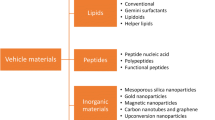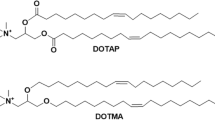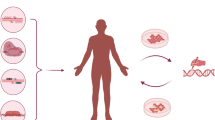Heading
Abstract
Purpose. Suicide gene therapy offers the potential to increase the selective toxicity of antitumor agents by intratumoral expression of exogenous enzymes that convert nontoxic prodrugs to toxic products. The use of herpes simplex virus thymidine kinase with ganciclovir, and E. coli cytosine deaminase with 5-fluorocytosine are well-known examples of this approach. The purpose of this study was to investigate a novel suicide gene therapy using E. coli β-galactosidase (β-gal) as the prodrug-activating enzyme. Advantages of this approach include: (1) the ability to use prodrugs that are cleaved by β-gal to agents that are known to possess activity against human solid tumors, and (2) the extensive experience gained with targeting β-gal to specific tumors in experimental animals and in humans.
Methods. Two different structural types of anthracycline prodrugs, N-[4′′-(β-D-galactopyranosyl)-3′′-nitrobenzyloxycarbonyl]daunomycin (Daun02) and N-[(4′′R,S)-4′′-ethoxy-4′′-(1′′′-O-β-D-galactopyranosyl)butyl]daunorubicin (gal-DNC4) were investigated. The prodrugs were evaluated as substrates for β-gal. Cytotoxicity studies of Daun02 were conducted against a murine tumor (Panc02), two human breast tumors (MCF-7 and T47D), and three human prostate tumors (PC3, DU145 and LNCAP) that had been transduced to express β-gal. Antitumor studies of Daun02 were conducted against mouse tumor Panc02 xenografts implanted subcutaneously.
Results. Daun02 was a good substrate for β-gal. By comparison, gal-DCN4 was a poor substrate. Except for PC3, the β-gal-transduced tumors showed 3- to 60-fold increased sensitivity to Daun02 compared with mock-transduced control cells. Daunomycin was formed from Daun02 in tissue culture medium containing β-gal-transduced cell lines but was not observed in the medium from mock-transduced controls. In vivo therapeutic studies of Daun02 against the Panc02 tumor in athymic mice showed no significant inhibition of tumor growth. Pharmacokinetic studies showed limited distribution of the prodrug beyond the vascular space.
Conclusions.E. coli β-gal may be useful as a prodrug-activating enzyme in suicide gene therapy and has the potential to increase the selective toxicity of conventional antitumor agents. Although this approach worked well against tumor cells in vitro, it was not effective against a xenograft model in vivo, apparently because of poor drug-tissue distribution.
Similar content being viewed by others
Author information
Authors and Affiliations
Additional information
Electronic Publication
Rights and permissions
About this article
Cite this article
Farquhar, D., Pan, B., Sakurai, M. et al. Suicide gene therapy using E. coli β-galactosidase. Cancer Chemother Pharmacol 50, 65–70 (2002). https://doi.org/10.1007/s00280-002-0438-2
Received:
Accepted:
Issue Date:
DOI: https://doi.org/10.1007/s00280-002-0438-2




